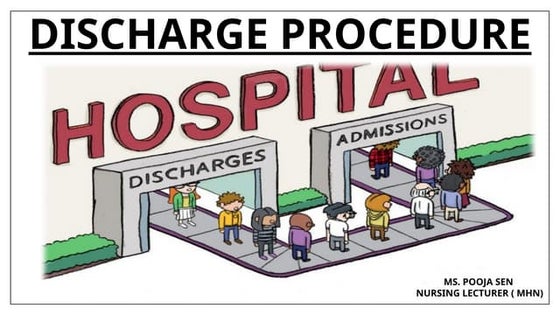Whiteboard february 10 2017
Download as DOCX, PDF0 likes49 views
This document provides definitions and examples for several English phrases and vocabulary words: 1) It defines words like "to drift", "adrift", "ubiquitous", "chunk", "dwindle", and "seminal" and provides examples of their usage. 2) It explains phrases such as "a wealth of something", "to unearth", "a surge in something", "to have roots in", and "to stem from" along with examples. 3) Finally, it discusses ways to modify adjectives using "too" and "such" as in "not too bold a claim" and "not such a good teacher". It also notes the meaning of "fast asleep
1 of 2
Download to read offline
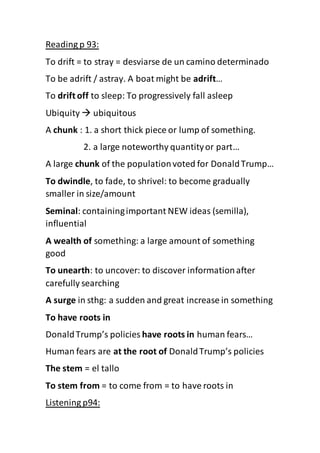

Recommended
Meat makers the economist films C1.2



Meat makers the economist films C1.2jeanphilippeguy
╠²
Ethan Brown is developing plant-based meat alternatives to disrupt the meat industry. His company Just produces plant-based burgers that closely mimic the texture and taste of real beef burgers. In testing, some tasters noted the plant-based burgers had a similar or slightly coarser texture than meat burgers. While the technology to mass produce these meat alternatives still needs improvements, Ethan believes it could significantly reduce greenhouse gas emissions from the meat industry within the next few decades.E sports superstars economist films



E sports superstars economist filmsjeanphilippeguy
╠²
Big Daddy is a professional computer gamer who has been recruited by the esports team Cloud 9 to compete in The International, a prestigious Dota 2 tournament with an $18 million prize pool. As one of the top players in the world, Big Daddy is used to being looked up to, but is still learning to gel with his new teammates just two weeks before the tournament. While Cloud 9 has shown they can play well together, fundamental issues and a lack of morale cause their strategy to fall apart during a practice match.Error correction 2 friday group. complete



Error correction 2 friday group. completejeanphilippeguy
╠²
The document discusses the author's passion for outdoor activities like mountain trips, wall climbing, and treasure hunting. They have been doing judo since age four and climbed the social ladder in their group to become the person who plans outdoor expeditions. The author feels prepared physically and psychologically to live with basic supplies in the wilderness for 6 months or more, as they learned survival skills from trips to the forest with their parents when young. Nature is their passion, and they were hooked on the last edition of a reality show about survival that they saw advertised.White board friday, feb 3 2017



White board friday, feb 3 2017jeanphilippeguy
╠²
The document provides examples of words and phrases that lend themselves to using the subjunctive mood in English, as well as tips for circumventing the subjunctive. It lists verbs like suggest, recommend, ask, advise, demand, insist that take the subjunctive. Phrases like it is vital/mandatory/necessary can also take the subjunctive. The subjunctive is formed using the bare infinitive without "to" for all personal pronouns. Ways to avoid the subjunctive include using "for" plus a noun and suggesting actions with modal verbs like "should."Introverts vs extroverts c1.2 economist with key



Introverts vs extroverts c1.2 economist with keyjeanphilippeguy
╠²
- The document discusses how companies can better support introverted employees who make up a third to half of the population. While companies focus on avoiding discrimination based on attributes like race and gender, they often disadvantage introverts through practices like open-plan offices and an emphasis on meetings and public performance.
- Introverts gain energy from solitary activities while extroverts recharge from social interaction. Companies wrongly assume that knocking down walls and constant meetings best fosters innovation, when this actually makes it harder for introverts to concentrate. Promotion also favors extroversion despite evidence that quiet, self-effacing leaders often have the most success.
- The document recommends accommodating introverts needs for private space and recognition that theirWhiteboard friday feb 24



Whiteboard friday feb 24jeanphilippeguy
╠²
The document discusses various English words and phrases related to rising, giving, and conditional agreements. It provides examples of how to use words like rise, raise, arise, stave off, onerous, eavesdrop, overhear, and in all fairness. It also asks questions about context clues and motivations in some examples.Whiteboard wednesday feb 22 C1.2



Whiteboard wednesday feb 22 C1.2jeanphilippeguy
╠²
The document discusses a potential business deal between Oscar and Miranda. Oscar suggests an offer of 250 but thinks 500 would be more appropriate. Miranda asks what Oscar is offering and says she wouldn't go above 350 in principle. The document also contains sample sentences about potential reactions to Oscar betraying Sara by leaking an article, including that Sara would be angry and Nadia would fire Oscar. It concludes by defining unique selling proposition and discussing the difference between aiming to do something versus being aimed at a target.Whiteboard 13 02 on survey questions ICAI B2.1



Whiteboard 13 02 on survey questions ICAI B2.1jeanphilippeguy
╠²
The document discusses different types of survey questions including yes/no, multiple choice, scale, and open-ended questions. It provides tips for writing surveys such as avoiding influencing responses, being objective, and using appropriate language. Survey questions should be concise and aimed at the right audience, and scales or filters can help structure surveys effectively.

Interesting mistakes 1 icai c2.1



Interesting mistakes 1 icai c2.1jeanphilippeguy
╠²
While most people eat meat several times a week and are dependent on it, the production of meat has negative environmental effects. A survey found that despite knowing this, people would not give up eating meat. However, 60% of participants expressed interest in learning more about meat substitutes and a substantial minority showed interest in changing their diets. While not many would become vegetarian or vegan, the report suggests promoting more eco-friendly food options could be a solution to reduce meat consumption.White board icai c2.1 feb 2 theatre survey



White board icai c2.1 feb 2 theatre surveyjeanphilippeguy
╠²
Contrary to expectations, a new study found that teenagers enjoy theater and it has widespread appeal among them. The report provided interesting new information showing teenagers seem to enjoy live performances and their appetite for theater is greater than commonly believed. The study defies common notions about teenagers' interests and prompts a rethinking of theater's appeal to that age group.Gradable adjectives 4 e4



Gradable adjectives 4 e4jeanphilippeguy
╠²
This document categorizes and provides examples of different types of adjectives and adverbs in English. It divides adjectives into gradable adjectives that can take levels or degrees such as good, bad, tall, small, and ungradable adjectives that cannot such as amazing, exceptional, stunning. It also gives examples of adverbs that can modify gradable adjectives with levels like very, slightly, extremely, and adverbs that intensify ungradable adjectives completely, utterly. Some words like unexpected and really can be used as both gradable and ungradable.

Mini activité sur vidéo france infotv vracjeanphilippeguy
╠²
Mini activité sur vidéo france infotv vracWhite board 19 02 icai



White board 19 02 icaijeanphilippeguy
╠²
The document discusses clean energy development in third-world countries and focuses on the altruistic aspects more than billing systems. It also compares being human to behaving in a humane way and lists examples of gradable and ungradable adjectives as well as how adverbs can modify them.Review on the subjunctive



Review on the subjunctivejeanphilippeguy
╠²
It is important to understand when and how to use the subjunctive mood in English. The subjunctive is used to express necessity, urgency, or importance when stating a call to action or making a recommendation. It is also used after expressions of emotion like insistence, demand, or adamancy when suggesting something should or should not occur. The subjunctive can be formed using the infinitive without "to" or using a passive or gerund construction.Exam outline becs 17 18



Exam outline becs 17 18jeanphilippeguy
╠²
The document outlines the sections and content of an exam. Section I is reading comprehension consisting of multiple choice questions on articles. Section II is use of English, testing error correction, grammar, vocabulary including brands, and a gap-fill exercise. Section III involves writing a report, product description, or copy in which performance will be evaluated on range and idiom, accuracy, coherence, and completion of the task.

Activité de correction des fautes communiqué de presse keyjeanphilippeguy
╠²
Activité de correction des fautes communiqué de presse key

Circular alumnos segundo cuatri jeanphilippeguy
╠²
Este documento es una circular para los alumnos actuales del Centro de Idiomas de la Universidad Complutense de Madrid (CSIM) sobre la matr├Łcula para el segundo cuatrimestre del curso 2017-2018. Informa que la matr├Łcula comenzar├Ī el 11 de diciembre y que los alumnos actuales del CSIM recibir├Īn un descuento en la matr├Łcula, as├Ł como un descuento adicional del 10% si se han matriculado en el primer cuatrimestre. Adem├Īs, los alumnos que se matriculen en diciembre podr├Īn

Grammar review 4 e4 21 11-2017



Grammar review 4 e4 21 11-2017jeanphilippeguy
╠²
This document provides information on several English grammar topics:
- Compound subjects which are two or more subjects joined by a conjunction and require a plural verb.
- Singular and plural subjects and their verb agreement.
- The use of reflexive pronouns which refer back to the subject of the sentence or are used for emphasis.
- A list of reflexive pronouns and examples of their use as objects of prepositions.
- Brief explanations of relative pronouns.

Activité de correction des fautes communiqué de pressejeanphilippeguy
╠²
Activité de correction des fautes communiqué de presseError correction 3ºe4 nov17



Error correction 3┬║e4 nov17jeanphilippeguy
╠²
The document contains sentences with errors that need to be corrected. The corrections address issues with subject-verb agreement, punctuation, word choice, grammar and clarity. The overall goal is to improve the quality, consistency and readability of the writing.

Robert greenfield défie les supermarchésjeanphilippeguy
╠²
Robert greenfield défie les supermarchésError correction projects becs



Error correction projects becsjeanphilippeguy
╠²
The document discusses a survey conducted by Netflix to personalize their sports product based on users' interests and demographics like age and gender. The survey found that most respondents were not interested in the sports product. It also discusses transportation trends in big cities, where cars are less practical due to traffic, and a new revolutionary product that could solve transportation problems. The document describes features of a coffee company, including its headquarters, distribution network, and the results of a survey on coffee consumption and interest in fair trade. It also mentions an app with instructions for tasks like cooking and ironing aimed at students living independently for the first time.Error correction 3┬║e4 nov17



Error correction 3┬║e4 nov17jeanphilippeguy
╠²
The document contains sentences with errors that need to be corrected. It discusses surveys about sports enthusiasts and lifestyle changes, healthy eating habits, feedback on a new product concept, attendance lists at schools, and a potential new digital platform for accessing video games from home called Downstream.Mad men and sexism business english 



Mad men and sexism business english jeanphilippeguy
╠²
Don Draper is tasked with developing a new advertising campaign for Lucky Strike cigarettes after health concerns have made it difficult to promote them directly. He proposes a psychological strategy focusing on the idea that society has a "death wish" and wants to feel free from fear. When the clients reject this approach, Don suggests differentiating Lucky Strike by highlighting how it is toasted rather than just air-cured like other cigarettes. This innovative approach frames the product as a pleasure rather than concerning health, and the clients approve the new slogan "It's toasted".Correction sex and power



Correction sex and powerjeanphilippeguy
╠²
This document contains a list of 19 words related to coming of age, relationships, and social interactions. Many of the words describe subtle behaviors or advances that can make people feel uncomfortable, such as dismissing, overlooking, undermining or retaliating against others. A few positive terms are also included, such as having zeal. Overall, the list touches on experiences and interactions that are part of growing up and navigating interpersonal dynamics.

How to Configure Recurring Revenue in Odoo 17 CRM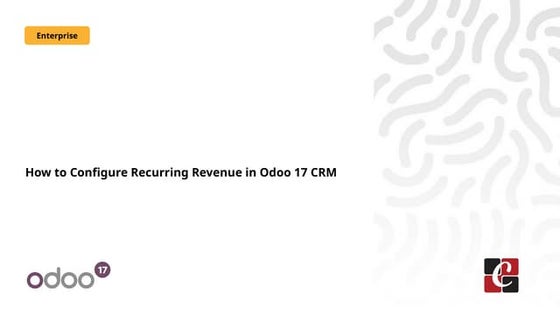



How to Configure Recurring Revenue in Odoo 17 CRMCeline George
╠²
This slide will represent how to configure Recurring revenue. Recurring revenue are the income generated at a particular interval. Typically, the interval can be monthly, yearly, or we can customize the intervals for a product or service based on its subscription or contract. ASP.NET Web API Interview Questions By Scholarhat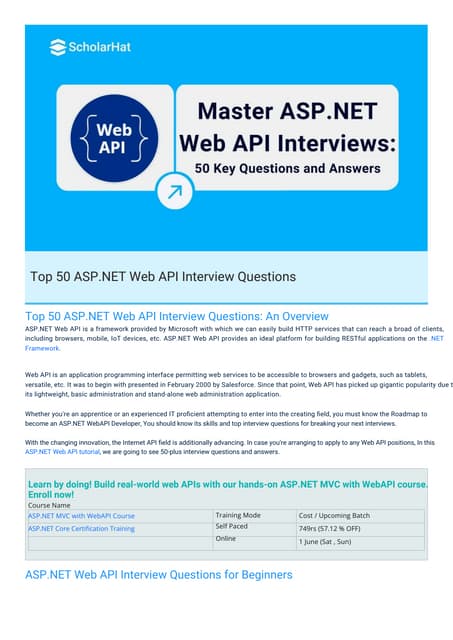



ASP.NET Web API Interview Questions By ScholarhatScholarhat
╠²
ASP.NET Web API Interview Questions By ScholarhatMore Related Content
More from jeanphilippeguy (20)


Interesting mistakes 1 icai c2.1



Interesting mistakes 1 icai c2.1jeanphilippeguy
╠²
While most people eat meat several times a week and are dependent on it, the production of meat has negative environmental effects. A survey found that despite knowing this, people would not give up eating meat. However, 60% of participants expressed interest in learning more about meat substitutes and a substantial minority showed interest in changing their diets. While not many would become vegetarian or vegan, the report suggests promoting more eco-friendly food options could be a solution to reduce meat consumption.White board icai c2.1 feb 2 theatre survey



White board icai c2.1 feb 2 theatre surveyjeanphilippeguy
╠²
Contrary to expectations, a new study found that teenagers enjoy theater and it has widespread appeal among them. The report provided interesting new information showing teenagers seem to enjoy live performances and their appetite for theater is greater than commonly believed. The study defies common notions about teenagers' interests and prompts a rethinking of theater's appeal to that age group.Gradable adjectives 4 e4



Gradable adjectives 4 e4jeanphilippeguy
╠²
This document categorizes and provides examples of different types of adjectives and adverbs in English. It divides adjectives into gradable adjectives that can take levels or degrees such as good, bad, tall, small, and ungradable adjectives that cannot such as amazing, exceptional, stunning. It also gives examples of adverbs that can modify gradable adjectives with levels like very, slightly, extremely, and adverbs that intensify ungradable adjectives completely, utterly. Some words like unexpected and really can be used as both gradable and ungradable.

Mini activité sur vidéo france infotv vracjeanphilippeguy
╠²
Mini activité sur vidéo france infotv vracWhite board 19 02 icai



White board 19 02 icaijeanphilippeguy
╠²
The document discusses clean energy development in third-world countries and focuses on the altruistic aspects more than billing systems. It also compares being human to behaving in a humane way and lists examples of gradable and ungradable adjectives as well as how adverbs can modify them.Review on the subjunctive



Review on the subjunctivejeanphilippeguy
╠²
It is important to understand when and how to use the subjunctive mood in English. The subjunctive is used to express necessity, urgency, or importance when stating a call to action or making a recommendation. It is also used after expressions of emotion like insistence, demand, or adamancy when suggesting something should or should not occur. The subjunctive can be formed using the infinitive without "to" or using a passive or gerund construction.Exam outline becs 17 18



Exam outline becs 17 18jeanphilippeguy
╠²
The document outlines the sections and content of an exam. Section I is reading comprehension consisting of multiple choice questions on articles. Section II is use of English, testing error correction, grammar, vocabulary including brands, and a gap-fill exercise. Section III involves writing a report, product description, or copy in which performance will be evaluated on range and idiom, accuracy, coherence, and completion of the task.

Activité de correction des fautes communiqué de presse keyjeanphilippeguy
╠²
Activité de correction des fautes communiqué de presse key

Circular alumnos segundo cuatri jeanphilippeguy
╠²
Este documento es una circular para los alumnos actuales del Centro de Idiomas de la Universidad Complutense de Madrid (CSIM) sobre la matr├Łcula para el segundo cuatrimestre del curso 2017-2018. Informa que la matr├Łcula comenzar├Ī el 11 de diciembre y que los alumnos actuales del CSIM recibir├Īn un descuento en la matr├Łcula, as├Ł como un descuento adicional del 10% si se han matriculado en el primer cuatrimestre. Adem├Īs, los alumnos que se matriculen en diciembre podr├Īn

Grammar review 4 e4 21 11-2017



Grammar review 4 e4 21 11-2017jeanphilippeguy
╠²
This document provides information on several English grammar topics:
- Compound subjects which are two or more subjects joined by a conjunction and require a plural verb.
- Singular and plural subjects and their verb agreement.
- The use of reflexive pronouns which refer back to the subject of the sentence or are used for emphasis.
- A list of reflexive pronouns and examples of their use as objects of prepositions.
- Brief explanations of relative pronouns.

Activité de correction des fautes communiqué de pressejeanphilippeguy
╠²
Activité de correction des fautes communiqué de presseError correction 3ºe4 nov17



Error correction 3┬║e4 nov17jeanphilippeguy
╠²
The document contains sentences with errors that need to be corrected. The corrections address issues with subject-verb agreement, punctuation, word choice, grammar and clarity. The overall goal is to improve the quality, consistency and readability of the writing.

Robert greenfield défie les supermarchésjeanphilippeguy
╠²
Robert greenfield défie les supermarchésError correction projects becs



Error correction projects becsjeanphilippeguy
╠²
The document discusses a survey conducted by Netflix to personalize their sports product based on users' interests and demographics like age and gender. The survey found that most respondents were not interested in the sports product. It also discusses transportation trends in big cities, where cars are less practical due to traffic, and a new revolutionary product that could solve transportation problems. The document describes features of a coffee company, including its headquarters, distribution network, and the results of a survey on coffee consumption and interest in fair trade. It also mentions an app with instructions for tasks like cooking and ironing aimed at students living independently for the first time.Error correction 3┬║e4 nov17



Error correction 3┬║e4 nov17jeanphilippeguy
╠²
The document contains sentences with errors that need to be corrected. It discusses surveys about sports enthusiasts and lifestyle changes, healthy eating habits, feedback on a new product concept, attendance lists at schools, and a potential new digital platform for accessing video games from home called Downstream.Mad men and sexism business english 



Mad men and sexism business english jeanphilippeguy
╠²
Don Draper is tasked with developing a new advertising campaign for Lucky Strike cigarettes after health concerns have made it difficult to promote them directly. He proposes a psychological strategy focusing on the idea that society has a "death wish" and wants to feel free from fear. When the clients reject this approach, Don suggests differentiating Lucky Strike by highlighting how it is toasted rather than just air-cured like other cigarettes. This innovative approach frames the product as a pleasure rather than concerning health, and the clients approve the new slogan "It's toasted".Correction sex and power



Correction sex and powerjeanphilippeguy
╠²
This document contains a list of 19 words related to coming of age, relationships, and social interactions. Many of the words describe subtle behaviors or advances that can make people feel uncomfortable, such as dismissing, overlooking, undermining or retaliating against others. A few positive terms are also included, such as having zeal. Overall, the list touches on experiences and interactions that are part of growing up and navigating interpersonal dynamics.

Recently uploaded (20)
How to Configure Recurring Revenue in Odoo 17 CRM



How to Configure Recurring Revenue in Odoo 17 CRMCeline George
╠²
This slide will represent how to configure Recurring revenue. Recurring revenue are the income generated at a particular interval. Typically, the interval can be monthly, yearly, or we can customize the intervals for a product or service based on its subscription or contract. ASP.NET Web API Interview Questions By Scholarhat



ASP.NET Web API Interview Questions By ScholarhatScholarhat
╠²
ASP.NET Web API Interview Questions By ScholarhatFunctional Muscle Testing of Facial Muscles.pdf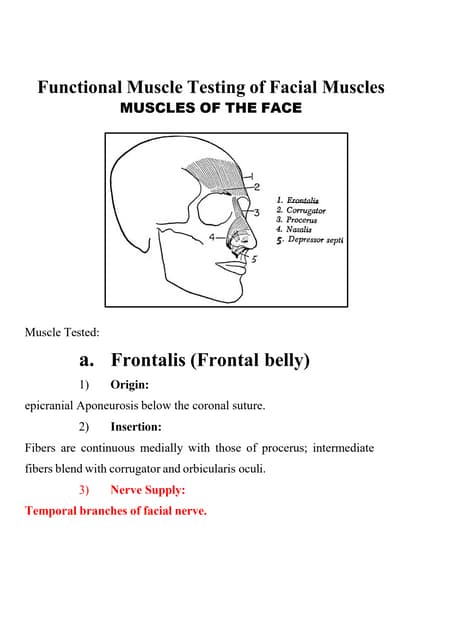



Functional Muscle Testing of Facial Muscles.pdfSamarHosni3
╠²
Functional Muscle Testing of Facial Muscles.pdfInventory Reporting in Odoo 17 - Odoo 17 Inventory App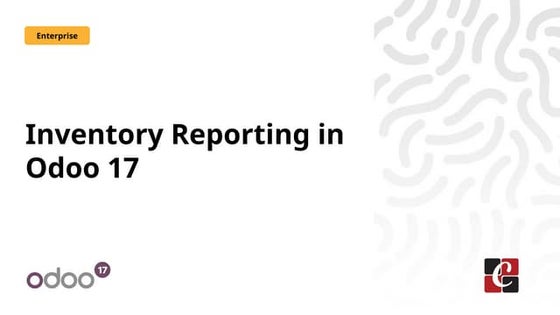



Inventory Reporting in Odoo 17 - Odoo 17 Inventory AppCeline George
╠²
This slide will helps us to efficiently create detailed reports of different records defined in its modules, both analytical and quantitative, with Odoo 17 ERP.Oral exam Kenneth Bech - What is the meaning of strategic fit?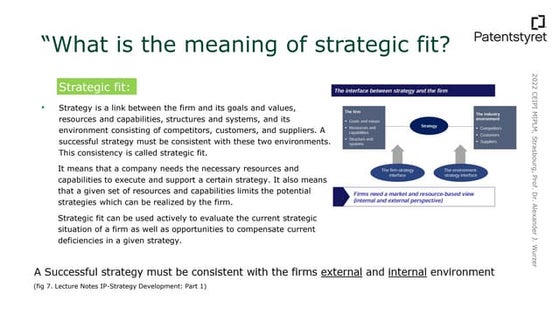



Oral exam Kenneth Bech - What is the meaning of strategic fit?MIPLM
╠²
Presentation of the CEIPI DU IPBA oral exam of Kenneth Bech - What is the meaning of strategic fit? Full-Stack .NET Developer Interview Questions PDF By ScholarHat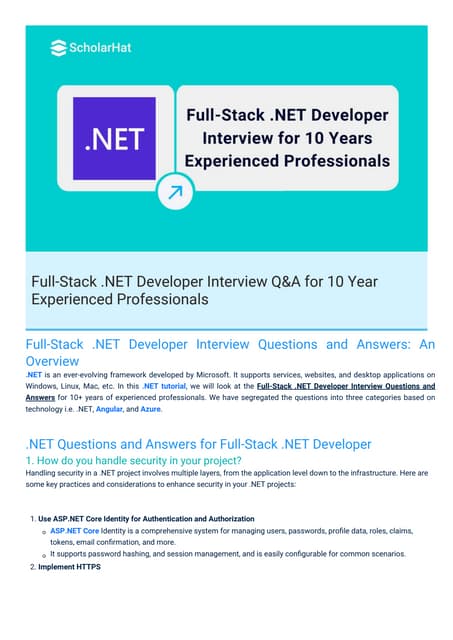



Full-Stack .NET Developer Interview Questions PDF By ScholarHatScholarhat
╠²
Full-Stack .NET Developer Interview Questions PDF By ScholarHatEntity Framework Interview Questions PDF By ScholarHat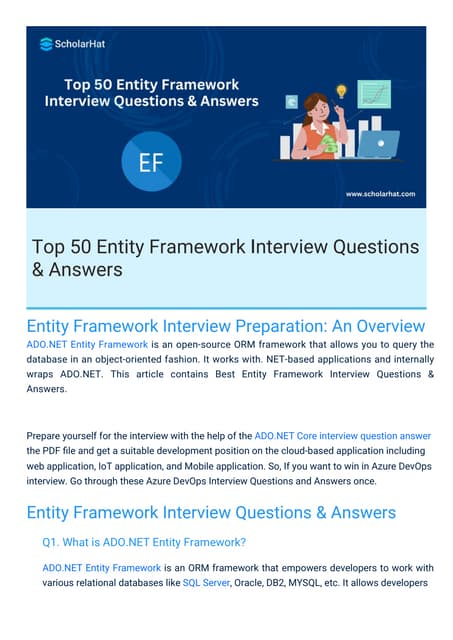



Entity Framework Interview Questions PDF By ScholarHatScholarhat
╠²
Entity Framework Interview Questions PDF By ScholarHatHow to Configure Proforma Invoice in Odoo 18 Sales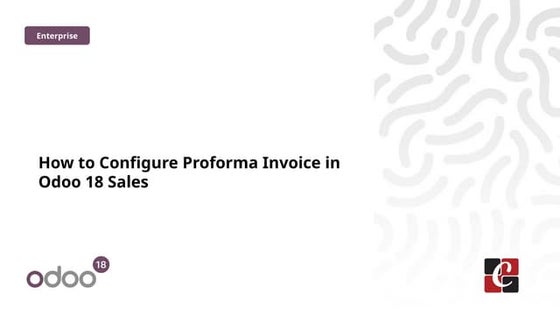



How to Configure Proforma Invoice in Odoo 18 SalesCeline George
╠²
In this slide, weŌĆÖll discuss on how to configure proforma invoice in Odoo 18 Sales module. A proforma invoice is a preliminary invoice that serves as a commercial document issued by a seller to a buyer.RRB ALP CBT 2 Mechanic Motor Vehicle Question Paper (MMV Exam MCQ)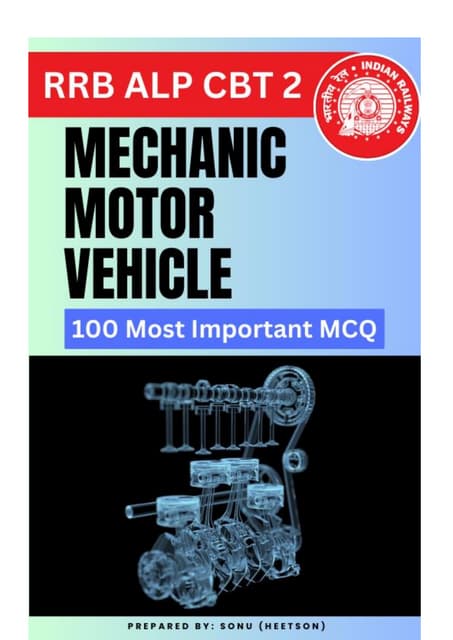



RRB ALP CBT 2 Mechanic Motor Vehicle Question Paper (MMV Exam MCQ)SONU HEETSON
╠²
RRB ALP CBT 2 Mechanic Motor Vehicle Question Paper. MMV MCQ PDF Free Download for Railway Assistant Loco Pilot Exam.ASP.NET Interview Questions PDF By ScholarHat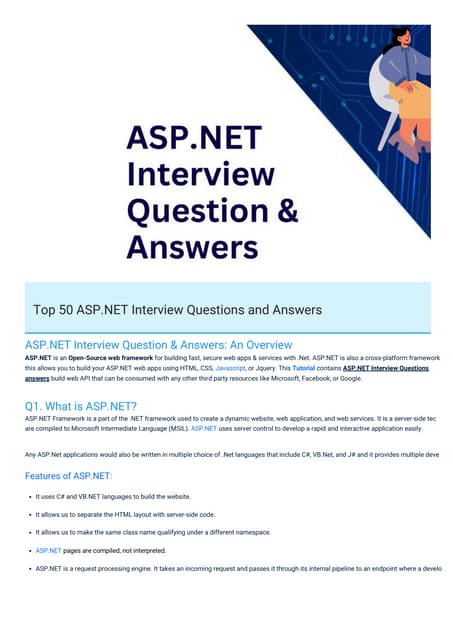



ASP.NET Interview Questions PDF By ScholarHatScholarhat
╠²
ASP.NET Interview Questions PDF By ScholarHatIntellectual Honesty & Research Integrity.pptx



Intellectual Honesty & Research Integrity.pptxNidhiSharma495177
╠²
Research Publication & Ethics contains a chapter on Intellectual Honesty and Research Integrity.
Different case studies of intellectual dishonesty and integrity were discussed.Hannah Borhan and Pietro Gagliardi OECD present 'From classroom to community ...



Hannah Borhan and Pietro Gagliardi OECD present 'From classroom to community ...EduSkills OECD
╠²
Hannah Borhan, Research Assistant, OECD Education and Skills Directorate and Pietro Gagliardi, Policy Analyst, OECD Public Governance Directorate present at the OECD webinar 'From classroom to community engagement: Promoting active citizenship among young people" on 25 February 2025. You can find the recording of the webinar on the website https://oecdedutoday.com/webinars/
Effective Product Variant Management in Odoo 18



Effective Product Variant Management in Odoo 18Celine George
╠²
In this slide weŌĆÖll discuss on the effective product variant management in Odoo 18. Odoo concentrates on managing product variations and offers a distinct area for doing so. Product variants provide unique characteristics like size and color to single products, which can be managed at the product template level for all attributes and variants or at the variant level for individual variants.How to create security group category in Odoo 17



How to create security group category in Odoo 17Celine George
╠²
This slide will represent the creation of security group category in odoo 17. Security groups are essential for managing user access and permissions across different modules. Creating a security group category helps to organize related user groups and streamline permission settings within a specific module or functionality.Whiteboard february 10 2017
- 1. Reading p 93: To drift = to stray = desviarse de un camino determinado To be adrift / astray. A boat might be adriftŌĆ” To drift off to sleep: To progressively fall asleep Ubiquity ’āĀ ubiquitous A chunk : 1. a short thick piece or lump of something. 2. a large noteworthy quantityor partŌĆ” A large chunk of the populationvoted for DonaldTrumpŌĆ” To dwindle, to fade, to shrivel: to become gradually smaller in size/amount Seminal: containingimportant NEW ideas (semilla), influential A wealth of something: a large amount of something good To unearth: to uncover: to discover informationafter carefully searching A surge in sthg: a sudden and great increase in something To have roots in DonaldTrumpŌĆÖs policies have roots in human fearsŌĆ” Human fears are at the root of DonaldTrumpŌĆÖs policies The stem = el tallo To stem from = to come from = to have roots in Listening p94:
- 2. I hope itŌĆÖs not too bold a claim Too / that + adjective + a + noun Jeanphiis not that good a teacher after all Jeanphiis not such a good teacher after all Meryl Streep is not that good an actress Careful: to be fast asleep means to be profoundly asleep Think of the seatbelt you fasten on a plane ;)

